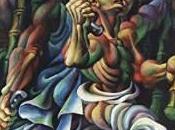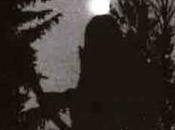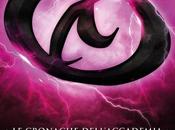
Year of first publication: 2009
Genre: non-fiction, essays
Country: UK
It is unusual for a collection of essays to be so personal, but it’s undeniable that you will find out more about Zadie Smith’s private life by reading this than you did in the three novels she has written so far (and if you haven't read them just run to the nearest bookstore!). You discover many things about her family and her background, her “too old” white father and her younger brother for example, but you also learn about her passions (old cinema, stand-up comedy, Vladimir Nabokov and much more).
This collection is divided in four parts: Reading, Being, Seeing and Remembering. The best essay – and in a sense the most challenging – is the one about Nabokov, one of her favourite writers and it is of course in the first section, Reading. Smith argues that Roland Barthes’s “The Death of the Author” and Nabokov’s masterpieces (she admits of being a “Pnin” nerd herself!) don’t quite agree with each other. She used to get excited at Barthes, we all do. We tend to get excited at his accessibility and at his infinite possibilities. Zadie herself has indulged in writing essays like “Please Sir, Can I Have Some More: Bulimic Rejections of Self in Oliver Twist”. Nabokov, with his aim at directing the reader exactly where he wants without him realizing anything, sort of denies Barthes’s assumption that the author has lost its importance and the reader has the complete power. She has found this after reading tons of Nabokov of course, not just “Lolita”, like most of us have done*. That’s how she changed her mind about the death of the author, thanks to Vladimir Vladimorovic.
But Zadie Smith has changed her mind about other things too. One of these things is her father, whom she portrayed in her first novel in a comic and slightly vulgar way (her words). Now that he has passed away, she writes about him in two or three essays, relating about him storming the beach at Normandy during World War II (“Accidental Hero”) and about his passion for stand-up comedy, which he passed on to his immediate family (“Dead Man Laughing”).
Zadie Smith also writes, amongst other things, of E.M. Forster and his status of “middle manager”, because he was a sort of bridge between classes, sometimes writing for an ideal audience of people who might have stumbled on one of his novels by chance. Zadie’s passion for Forster stems out of the book, and so does her love for Katherine Hepburn (“Hepburn and Garbo”), Anna Magnani (“Note on Visconti’s Bellissima”) and David Foster Wallace (“Brief Interviews with Hideous Men: The Difficult Gifts of David Foster Wallace”), the latter also recently passed away.
Another outstanding and engaging essay in the collection and one I have to name in this post is “Speaking in Tongues”, based on a lecture she gave at the New York Public Library, in which she relates of people who speak in different accents, including her, Barack Obama and Eliza Dolittle. I had always wondered why Smith had such a posh accent, coming from a working-class environment and here I got my answer. She got it at Cambridge where she went to college and in this process she lost her original Willesden accent.This is a collection of essays that doesn’t read like boring, dull non-fiction but rather like narrative newspaper articles or even like short stories. Zadie Smith is that sort of writer who doesn’t make you regret her fiction-writing when you read her engaging, witty non-fiction pieces, so I thoroughly advise this book to everyone who appreciate literature (or is a fan of Hepburn, or again loves Tony Hancock).
* Nabokov is one of the most popular authors amongst Anglophone readers of a certain “weight”, but he’s just the obscure Russian-born writer of “Lolita” to Italian readers. Or so it seems to me.





